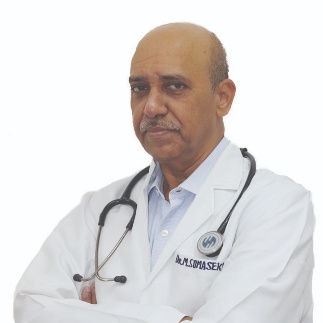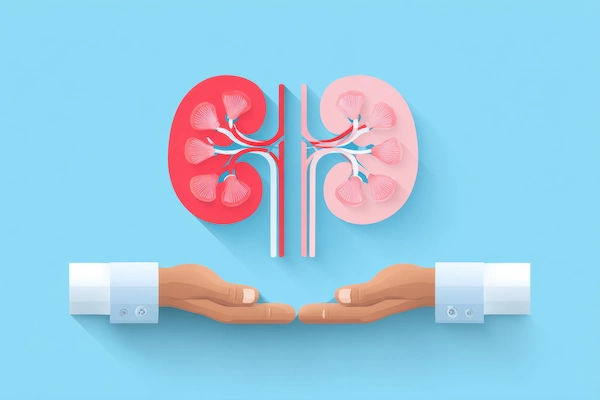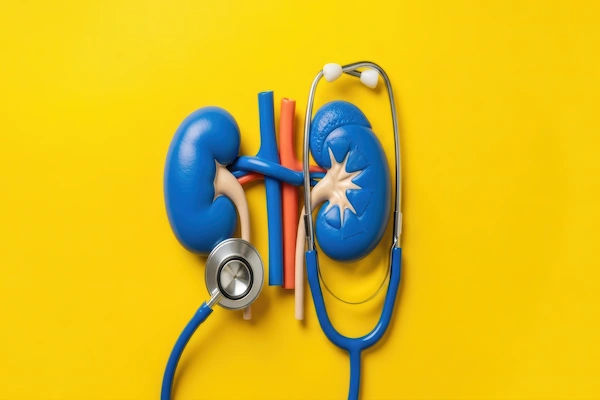Thriving After Your Kidney Transplant: Your Complete Guide to a New Life
Discover how to thrive after a kidney transplant. Learn about recovery, medications, diet, exercise, mental health, and long-term care for a healthier life.

Written by Dr. Dhankecha Mayank Dineshbhai
Reviewed by Dr. Rohinipriyanka Pondugula MBBS
Last updated on 13th Jan, 2026

Introduction
A kidney transplant is more than a surgical procedure; it is a profound turning point. It marks the end of years of dialysis and dietary restrictions and the beginning of a new chapter filled with renewed energy and possibility. However, this new life comes with its own set of rules and responsibilities. This journey of life after a kidney transplant is one of hope, vigilance, and adaptation. It is about learning to protect your incredible gift while embracing the freedom it provides.
This comprehensive guide is designed to walk you through every aspect of post-transplant life. From the immediate recovery period to managing long-term health, we will cover what you need to know about medications, diet, exercise, and mental well-being. The goal is to empower you with the knowledge to not just live, but to thrive after your transplant, ensuring you get the most out of your second chance at a healthy life.
The First Few Weeks: Navigating the Immediate Recovery Phase
The initial period after leaving the hospital is crucial for setting the stage for your long-term health. Your body is healing, and you are adjusting to a new routine centred around protecting your new kidney.
What to Expect When You Leave the Hospital
You will likely feel a mix of excitement and anxiety. While your energy levels will be vastly improved compared to pre-transplant, you will still tire easily. Pain or discomfort around the incision site is normal and can be managed with prescribed pain medication. It is essential to have a strong support system at home to help with daily chores, transportation to appointments, and emotional encouragement.
Your First Check-ups and Lab Tests
Your transplant team will become your new partners in health. Initially, you will see them very frequently, often two to three times a week. These visits are non-negotiable. They involve blood tests to check your creatinine levels and other markers to ensure your kidney is functioning well and that your immunosuppressant medication doses are correct. If your condition does not improve or you experience new symptoms like fever or decreased urine output, consult your transplant team immediately. Many centres offer 24/7 helplines for this purpose.
Caring for Your Incision Site
Keep the incision clean and dry as instructed by your nurses. Watch for signs of infection, such as redness, swelling, warmth, worsening pain, or drainage. You will be advised on when you can shower and when it is safe to resume activities like driving or lifting heavy objects, usually after six to eight weeks.
Consult Top Doctors for Personalised Advice
The Lifeline: Understanding Your Anti-Rejection Medications
Your new kidney is a foreign object that your body’s immune system will naturally try to attack. Immunosuppressants, or anti-rejection drugs, are what prevent this from happening. They are the most critical part of your post-transplant life.
How Immunosuppressants Work
These medications deliberately weaken your immune system’s response, making it less likely to recognise and reject the transplanted kidney. You will likely be on a combination of two to three different drugs, each targeting a different part of the immune response. This cocktail approach allows for lower doses of each individual drug, minimising side effects.
The Critical Importance of Medication Adherence
This cannot be overstated. Taking your medications exactly as prescribed, at the right time, in the right dose, every single day, is the single most important factor in keeping your kidney healthy long-term. Even missing a few doses can trigger a rejection episode. Use pill organisers, set phone alarms, and establish a routine you never break.
Common Side Effects and How to Manage Them
Every patient experiences side effects differently. Common ones include tremors, increased appetite, weight gain, acne, mood swings, and difficulty sleeping. Some drugs can increase the risk of post-transplant diabetes or high blood pressure. It is vital to report any bothersome side effects to your team. They can often adjust dosages or switch medications to find a regimen you tolerate better, rather than you stopping them on your own.
Eating Well for Your New Kidney: Nutrition and Diet
While you can enjoy a much more liberal diet than during dialysis, nutrition remains a powerful tool for protecting your transplant.
Foods to Embrace for Kidney Health
Focus on a heart-healthy diet rich in:
- Fresh fruits and vegetables, washed thoroughly to remove germs
- Lean proteins like grilled chicken, fish, and eggs
- Whole grains like oatmeal and brown rice
This diet helps manage blood pressure and cholesterol, which is vital as some medications can elevate these levels.
Foods to Limit or Avoid Post-Transplant
Be mindful of foods that may affect your recovery:
- Grapefruit and pomegranate: These interfere with the metabolism of many immunosuppressants, leading to dangerous drug levels in your blood
- High-sodium foods: To control blood pressure
- Raw or undercooked foods: Your weakened immune system makes you more susceptible to foodborne illnesses, so avoid sushi, raw oysters, unpasteurised dairy, and undercooked meats
- Excessive sugars and fats: To manage weight gain and diabetes risk
Managing Weight Gain from Medications
Corticosteroids can cause intense hunger and lead to rapid weight gain, which stresses your kidney and heart. Apollo24|7 offers consultations with nutritionists who can help you create a sustainable meal plan to maintain a healthy weight post-transplant.
Getting Active: Exercise and Physical Activity After Transplant
Exercise is key to rebuilding strength, managing weight, and boosting mental health.
Starting Slow: Safe Exercises for Early Recovery
Begin with short, frequent walks around your home or neighbourhood. This aids healing, improves circulation, and boosts energy. Gradually increase distance and pace as you feel stronger. Always follow your team’s guidelines on weight restrictions to protect your incision.
Building a Sustainable Fitness Routine
After full recovery, typically three to six months, you can engage in most activities such as swimming, cycling, jogging, and even strength training. The goal is 30 minutes of moderate activity most days of the week. Listen to your body and stay hydrated.
Protecting Your Health: Monitoring for Complications
Vigilance is your best defence against potential problems.
Recognising the Signs of Kidney Rejection
Early detection is critical. Contact your team immediately if you experience:
- Fever over 38°C
- Significant decrease in urine output
- Sudden weight gain from fluid retention
- Swelling in your hands, feet, or ankles
- Pain or tenderness over the transplant site
- Extreme fatigue
Preventing Infections: Your Weakened Immune System
Practice meticulous hygiene. Wash hands frequently, avoid crowded places initially, and stay up to date on vaccinations as approved by your team. Wear a mask in high-risk settings. Apollo24|7 offers convenient home collection for tests such as blood draws to monitor your white blood cell count, helping you avoid clinic waiting rooms.
Long-Term Risks: Diabetes, High Blood Pressure, and Cancer
Immunosuppressants increase your risk for these conditions. Regular screenings are essential. Protect your skin from the sun with clothing and high-SPF sunscreen, as the risk of skin cancer is significantly higher.
Beyond the Physical: Mental and Emotional Well-being
The psychological journey is as important as the physical one.
The Emotional Rollercoaster: Relief, Anxiety, and Guilt
It is normal to feel euphoric, followed by anxiety about rejection. Some patients experience "survivor’s guilt", especially if they received a deceased donor kidney. Acknowledging these feelings is the first step to managing them.
The Importance of Your Support System
Lean on family, friends, and support groups. Connecting with other transplant recipients who understand your unique challenges can be incredibly validating and helpful.
Returning to Work and Social Activities
Most people can return to work within three to six months. Communicate with your employer about any needed accommodations. Do not hesitate to re-engage with hobbies and social life, as it is a sign of returning to normalcy.
Conclusion
Life after a kidney transplant is a beautiful, complex, and ongoing journey. It is a balance between celebrating your newfound freedom and embracing the discipline required to protect it. By understanding your medications, committing to a healthy lifestyle, staying vigilant for signs of trouble, and caring for your mental and emotional health, you are not just a patient, you are an active participant in your own well-being. This guide provides the map, but you are the one steering toward a future of health and fulfilment. Remember, this second chance is a gift, and with careful management, you can enjoy a long, vibrant, and thriving life. If you ever have concerns about your symptoms or medication management, do not hesitate to consult a specialist online with Apollo24|7 for expert guidance tailored to your unique journey.
Consult Top Nephrologists
Consult Top Nephrologists

Dr. Manju Kamal
Nephrologist
12 Years • MBBS,MD(General Medicine), DNB,DM(Nephrology)
Angamaly
Apollo Hospitals Karukutty, Angamaly

Dr. Aswini Kumar Panigrahi
Nephrologist
23 Years • MBBS, MD (Int. Med.), DNB Nephro
Hyderabad
Apollo Hospitals Jubilee Hills, Hyderabad
(225+ Patients)

Dr. Pardha Saradhi
Nephrologist
9 Years • MBBS, MD-DNB (Gen. Med.), DNB (Nephro)
Hyderabad
Apollo Hospitals D R D O kanchanbagh, Hyderabad
(75+ Patients)

Dr. Somasekhar Mudigonda
Nephrologist
27 Years • MBBS, MD (Gen. Med.), DM (Nephro)
Hyderabad
Apollo Hospitals Jubilee Hills, Hyderabad
(225+ Patients)
Dr Ch Sashidhar
Nephrologist
20 Years • MBBS, MD General Medicine, DNB, Nephrology
Secunderabad
Apollo Hospitals Secunderabad, Secunderabad
Consult Top Doctors for Personalised Advice

Dr. Manju Kamal
Nephrologist
12 Years • MBBS,MD(General Medicine), DNB,DM(Nephrology)
Angamaly
Apollo Hospitals Karukutty, Angamaly

Dr. Aswini Kumar Panigrahi
Nephrologist
23 Years • MBBS, MD (Int. Med.), DNB Nephro
Hyderabad
Apollo Hospitals Jubilee Hills, Hyderabad
(225+ Patients)

Dr. Pardha Saradhi
Nephrologist
9 Years • MBBS, MD-DNB (Gen. Med.), DNB (Nephro)
Hyderabad
Apollo Hospitals D R D O kanchanbagh, Hyderabad
(75+ Patients)

Dr. Somasekhar Mudigonda
Nephrologist
27 Years • MBBS, MD (Gen. Med.), DM (Nephro)
Hyderabad
Apollo Hospitals Jubilee Hills, Hyderabad
(225+ Patients)
Dr Ch Sashidhar
Nephrologist
20 Years • MBBS, MD General Medicine, DNB, Nephrology
Secunderabad
Apollo Hospitals Secunderabad, Secunderabad
More articles from Kidney Disease
Frequently Asked Questions
What is the average life expectancy after a kidney transplant?
While it varies, a living donor kidney can last 15–20 years on average, and a deceased donor kidney 10–15 years. Many recipients live full, healthy lives for decades after their transplant, with life expectancy greatly exceeding that of staying on dialysis.
Can I ever stop taking my anti-rejection medications?
No. Immunosuppressants are a lifelong requirement. Stopping them will almost certainly lead to rejection of your transplant, as your immune system will eventually recognise the kidney as foreign and attack it.
Is it safe to get vaccinated after a kidney transplant?
Yes, but with important caveats. You should receive inactivated vaccines such as the flu shot and pneumonia vaccine, but must avoid live vaccines such as MMR or nasal spray flu vaccine unless specifically approved by your transplant team, as they could cause infection.
When can I safely travel after my transplant?
Most teams recommend waiting until 6–12 months post-transplant, when your medication doses are stable and your risk of rejection is lower. Always consult your team before making travel plans, especially for international destinations, and ensure you have ample medication for the trip.
How will a kidney transplant affect my sexual health and fertility?
For many, improved health leads to improved libido and sexual function. Fertility can also return for both men and women. However, pregnancy post-transplant is considered high risk and requires careful planning and consultation with your transplant and obstetric team well in advance.
_6.webp)

.webp)

